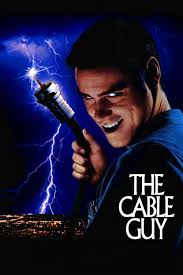Signs of the Corporate Death Spiral #5 : Have we learned nothing from Yahoo?
Every once in a while, I still come across a story about a book or books being banned, or even burned, in a local area or school system. And every time I hear a story like that I make the same , bad joke - "They are burning books? Burning them? I mean, have we learned nothing from Footloose?"
And every once in a while we come across stories of organizations that, in the spirit of the formerly great tech company Yahoo, pulling the corporate version of banning books, except is it about banning telework or remote work arrangements. You probably caught the news that this week IBM's Chief Marketing Officer Michelle Peluso is effectively banning remote working arrangements for IBM's US marketing organization. Staffers will have to report to, (and in some cases relocate within commuting distance of), one of six US offices and (in her words), sit "Shoulder to shoulder" with their colleagues.
IBM Marketing employees who are unable or unwilling to cease remote work arrangements and report to one of the six offices will be essentially tendering their resignation, (according to reports).
Call me cynical, but my guess is Ms. Peluso herself will not have to suffer a 'forced' relocation to keep her job. I bet she already lives near enough one of the six offices.
But the larger point, like Yahoo, Comcast, or any other organization that resorts to the 'No more remote working for anyone' card is sending a signal that they are kind of out of ideas on how to generate better ideas.
So they pull the 'More/Better ideas get generated when people are physically together' line and issue edicts like Ms. Peluso's and Yahoo's Marissa Mayer before that. And they are at least (partially) right. Sometimes great ideas do get generated when people are physically together.
But also true is that great ideas get generated when people are walking their dog, are in the shower, or sometimes when they wake up in the middle of the night and scribble something down on a pad. Keith Richards dreamed the riff for 'Satisfaction', woke up a 4AM and played the lick into a tape recorder on the night stand. He didn't come up with the legendary tune as Agenda Item #6 in an official Rolling Stones band weekly status meeting.
It seems like these kinds of blunt, non-differentiated, unscientific, (does IBM really know that working in the office will lead to better performance?), never work out in the long run.
The best talent that feels negatively impacted by this policy change will find their way to greener pastures. And other folks will feel forced by their employer to make incredibly disruptive life changing decisions in order to keep their jobs.
Ever have to hell an 11 year-old they have to relocate to a new city, new school, and make all new friends? Have fun with that conversation.
I don't know what is going on at IBM in a big-picture sense. But I do know the various IBM folks I have dealt with and do work with now (some are in Marketing), are all dedicated, intelligent, considerate, and a real pleasure to work with.
I hope things work out for them the way they want them to.

 Steve
Steve

